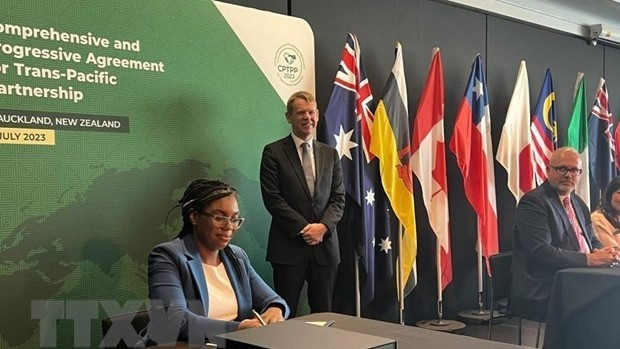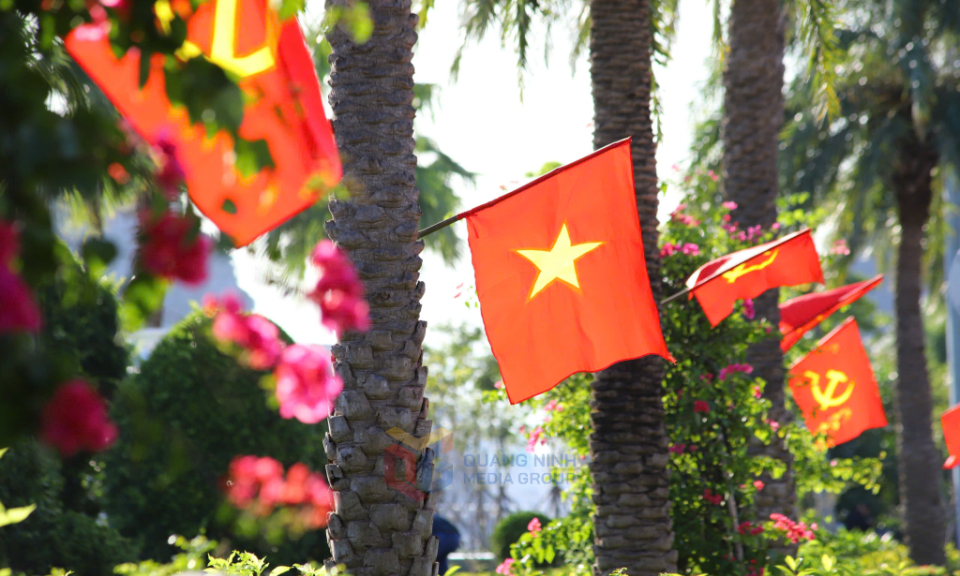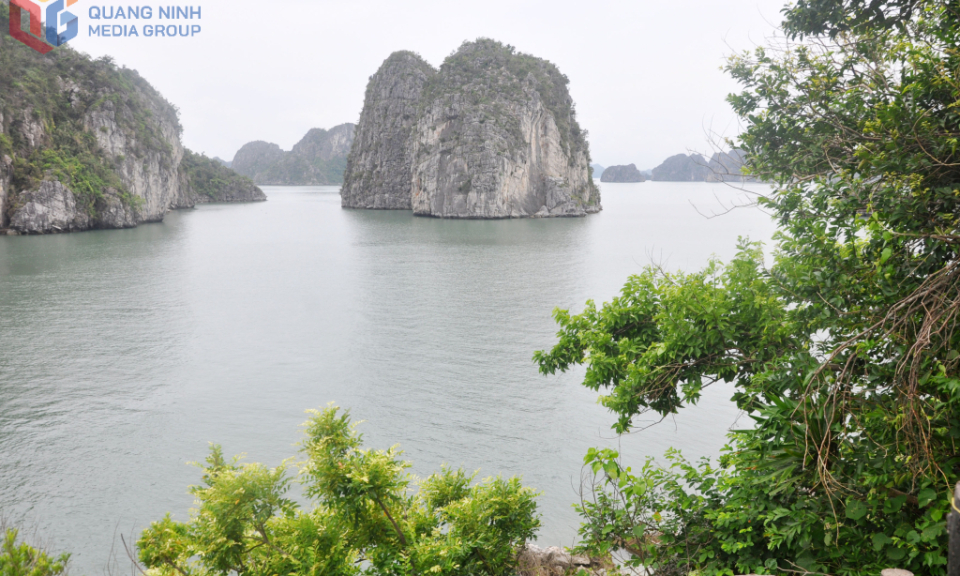Promoting trade liberalisation
After nearly two years of negotiations, the UK reached an agreement in principle to join the Comprehensive and Progressive Agreement for Trans-Pacific Partnership (CPTPP) on March 31 and officially joined CPTPP on July 16 at a ceremony held in Auckland, New Zealand. The event makes the UK become the first new member since the bloc’s founding in 2018, opening up new opportunities and prospects for global trade liberalisation.
At the ministerial meeting in Auckland, New Zealand, the CPTPP member countries officially approved the UK’s joining the agreement. The British government also announced that the country officially signed the treaty to accede the CPTPP trade bloc, whereby the UK has become the first new member and the first European country to join the CPTPP since this agreement was signed in 2018. This is also the UK’s largest trade deal since its withdrawal from the European Union (EU).
This agreement is considered a big boost for British businesses, opening up trade opportunities with a market of more than 500 million people and accessibility to a larger area. British officials insist this is the most important trade agreement London has signed in the post-Brexit era. Joining the CPTPP sends a strong message about the UK’s efforts to open the door to new markets around the world.
Before the UK’s official joining, the CPTPP had 11 members including Australia, Brunei, Canada, Chile, Japan, Malaysia, Mexico, New Zealand, Peru, Singapore and Vietnam. UK’s participation would raise the bloc’s Gross Domestic Product (GDP) from 12% to 15% of global GDP, equivalent to 15.7 trillion USD.
The British government said that the CPTPP will help reduce tariffs on British exports to the member countries of the agreement. More than 99% of UK goods exports to CPTPP members will be eligible for zero tariffs, including key export items such as cheese, cars, chocolate, machinery and alcohol.
The UK services sector will also benefit from reduced administrative procedures and greater access to developing markets in the Pacific that have high demand for UK quality products and services. The agreement is expected to come into force in the second half of 2024.
Meanwhile, New Zealand Prime Minister Chris Hipkins said that the participation of major economies in the CPTPP will help connect the Atlantic Ocean with the Indo-Pacific, thereby strengthening the rules-based trading system in the region. The Indo-Pacific region is seen as central to the global Britain strategy.
British Prime Minister Rishi Sunak once emphasised that the Indo-Pacific region is expected to contribute more than half of global economic growth by 2050. He noted that the UK wishes to deepen relations with this important region on the world geopolitical map. For the UK, the CPTPP offers the prospect of boosting economic growth, innovation and job creation.
Membership will also give Britain access to the Indo-Pacific region, which accounts for 60 percent of the world’s population. The UK Institute of Exports and International Trade believes that thanks to the agreement, some goods from CPTPP member countries will become cheaper for UK consumers and vice versa and the elimination of tariffs will help the best British products easily approach consumers in the Indo-Pacific region.
Amid the trend of increasing trade protectionism, the UK’s joining in the CPTPP will contribute to promoting value chains and supply chains in the bloc, enhancing trade liberalisation in the region, diversifying supply chains in the inner bloc and boosting global economic integration. This event is expected to create many new opportunities in global trade, promoting the trend of trade liberalisation.






